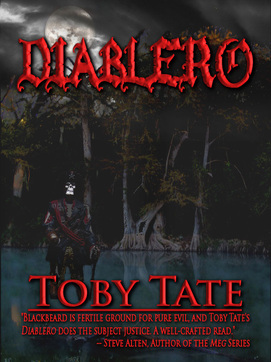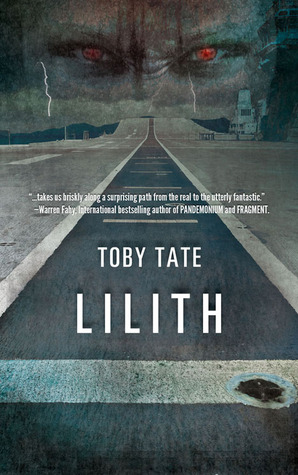I also loved reading comic books as a child, everything from
Tales from the Crypt and Boris Karloff’s Tales of Mystery to Shazam, The
Spirit, Marvel and DC comics and everything in between. I never missed an issue
of Famous Monsters of Filmland. If I wasn’t reading, I was either writing or
playing music.
I read a lot of classics—To Kill a Mockingbird, Lord of the
Flies, Frankenstein, Animal Farm, A Brave New World, Atlas Shrugged—but I always
seemed to have a predilection toward the macabre and the unusual. Working in a
bookstore eventually brought me in contact with a lot of newer authors and I
began to read different genres. But the ones that really kept me glued to the
page were the adventure and thriller novels—Clive Cussler, Nelson DeMille, James
Patterson, John Grisham, Brad Thor, Vince Flynn—the high-octane stuff.
Around 2003, when I began writing my first complete novel, I
decided that I was going to blend all my favorite genres into my writing.
Horror, fantasy, science fiction and adventure would all have a place in my
book. I loved the life-like characters Stephen King created in his books, but I
wanted more action. Clive Cussler’s adventures were captivating, but I wanted something
darker, more ominous and creepy. James Rollins’ creatures were frightening, but
I wanted a touch of the supernatural, creatures not bound by the laws of
physics.
So I created DIABLERO, and brought a demon-possessed Blackbeard
the pirate back to life in modern times. It was a character everyone knew, but
he wouldn’t be just a pirate—he would have powers to raise an army of the dead
and open a gateway to another dimension. The adventure begins in North
Carolina, but ends on an island in the Bahamas. Creepy and dark, with lots of
action and great characters. It was the kind of book I always wanted to read.
I continued my foray into action/thriller/sci-fi/horror
madness with a book called LILITH, another myth that was familiar to people,
yet enough of a mystery that I could add some embellishment and still make it
believable. It’s my biggest selling book to date.
I figured that the problem with blending all these genres
together would be finding an audience. For some readers, a book that
incorporates all those styles can be somewhat confusing. “I thought this was
supposed to be a thriller? What’s with the supernatural stuff?” “This horror
novel sucks—it’s nothing but action!” People who read thrillers don’t
necessarily like horror, and people who read horror don’t necessarily like
action/thrillers. Some people don’t like the supernatural aspect, while others are
offended by the military/black ops aspect of some of my stories. This has been
made evident by some not-so-favorable reviews. But the good reviews far
outweigh the bad ones on all my books—so far.
I don’t really target audiences, or take polls, or check out
the latest trends—I write what I would like to read. I feel like I’m filling a
niche, here, because there aren’t many writers that do what I do. Authors who love
horror read and write horror books; authors who love adventure/thrillers do the
same. I’m not a purist—I happen to get an equal thrill from reading a good sci-fi
book, a creepy horror novel or an engaging military adventure. But bringing it
all together on the page and making it work is the biggest thrill of all.
For more info on me and my work, check out my website, or follow me on Facebook
or Twitter.








